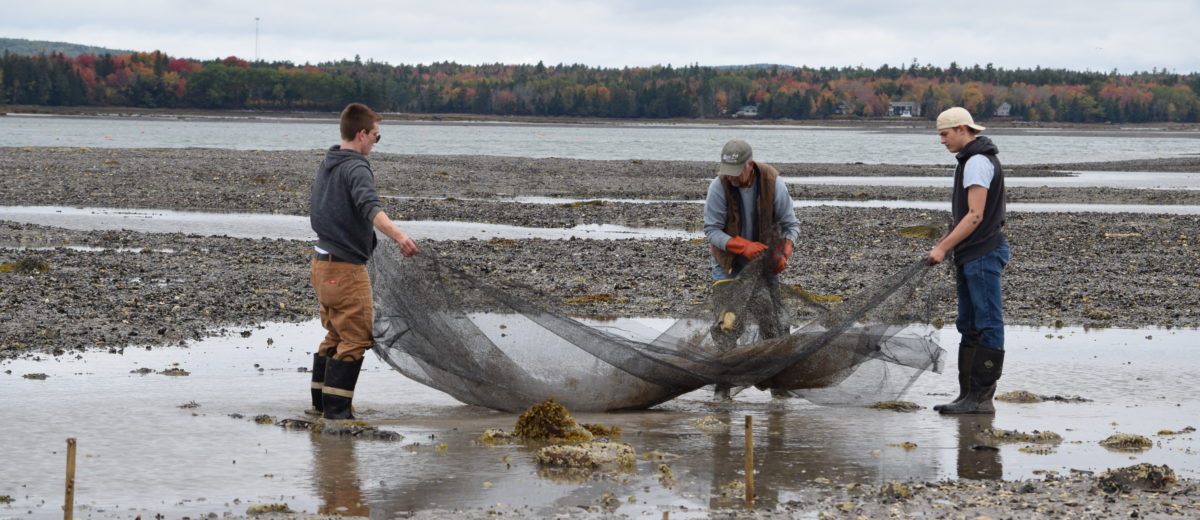John Dewey observed that if you “give the pupils something to do, not something to learn; and the doing is of such a nature as to demand thinking, or the intentional noting of connections; learning naturally results.” He also noticed that engaging students in solving problems resulted in a quality of learning that is different than reading a textbook: The learning is more likely to “stick” and be something that students can put to use.
Schoodic Institute has been helping schools engage students in doing science related to resource conservation and management for more than a decade. We do this not only because it results in powerful learning about science, but also because putting students to work on resource-related problems makes the issues real in ways that go far beyond just reading or hearing about them. Even more important, students come away with a sense that these are problems that they can help address, not just things to feel anxious about.
Community Shellfish Investigations
This project brings Sumner Memorial High School (our local school) together with the Department of Marine Resources (DMR), shellfish committees from Gouldsboro and Steuben, and the local shellfish warden. The students are repurposing an abandoned lobster pound in Jones Cove for use as a site to study clam growth and predation by green crabs. Students participate in developing research questions, study design, field work, data collection and analysis, and presenting their findings to the community. DMR and the shellfish committees could not do this work if the students were not involved. It is a real collaboration between the school, the towns, and the DMR to do work that none of them could accomplish on their own. Put simply, it is authentic science that matters.
Read a summary of the 2018-2019 clam investigation by Sumner students (PDF).
See the poster presented at the 2019 Maine Fishermen’s Forum (PDF).
See a poster about the 2017-2018 clam research.
Acadia Learning and the Dragonfly Mercury Project
The Acadia Learning program, initiated in 2007, brought 110 teachers, 3,000 students, and working scientists together to investigate questions that are relevant to the health of National Parks. Students and teachers were involved in collecting data, analyzing and making sense of it, and presenting their findings. Mercury research initiated by Acadia Learning contributed to the formation of the Dragonfly Mercury Project. Citizen scientists in more than 40 national parks from Alaska to Florida and Maine to Colorado are now participating, providing information on the spatial distribution of mercury contamination in national parks.
The Future of Four Seasons in Maine
The Acadia Learning “Snowpack” project, also known as The Future of Four Seasons in Maine: a Scientist-Teacher-Student Partnership to Investigate Climate Change in Seasonally Snow-covered Watersheds” was funded by a grant to the University of Maine and Schoodic Institute from NOAA’s B-WET program. Students and teachers worked with scientists to learn more about the snow system, and to create a network of snow monitoring sites that can help answer questions about the future of Maine’s snowpack all across the state.
